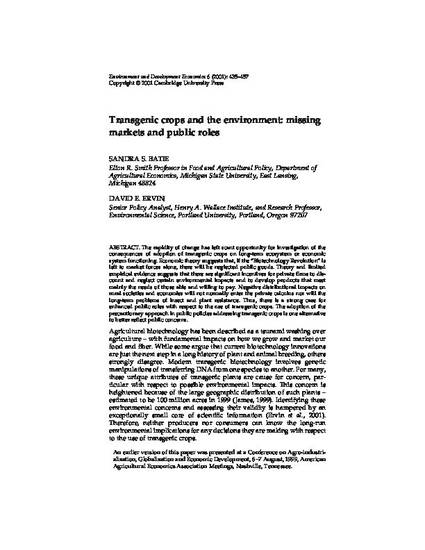
- Environmental impact analysis,
- Sustainable agriculture,
- Transgenic plants
The rapidity of change has left scant opportunity for investigation of the consequences of adoption of transgenic crops on long-term ecosystem or economic system functioning. Economic theory suggests that, if the "Biotechnology Revolution" is left to market forces alone, there will be neglected public goods. Theory and limited empirical evidence suggests that there are significant incentives for private firms to discount and neglect certain environmental impacts and to develop products that meet mainly the needs of those able and willing to pay. Negative distributional impacts on rural societies and economies will not normally enter the private calculus nor will the long-term problems of insect and plant resistance. Thus, there is a strong case for enhanced public roles with respect to the use of transgenic crops. The adoption of the precautionary approach in public policies addressing transgenic crops is one alternative to better reflect public concerns.

This is the publisher's final PDF. This paper was published in Environment And Development Economics (http://journals.cambridge.org/action/displayJournal?jid=ede)